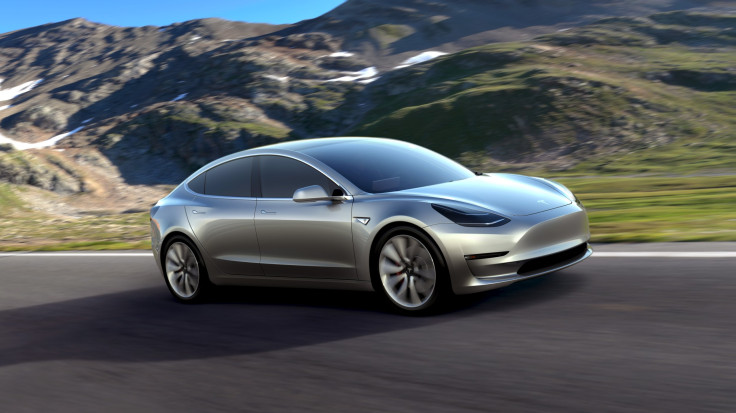Tesla Motors (TSLA) 1Q 2016 Sales: 14,820 Model S, Model X Cars Were Delivered In First Three Months; Model S Sales Jumped 45%

Tesla Motors sold 14,820 cars in the first three months of the year, the company announced Monday after markets closed. The figure fell short of the expected 16,000 units. The company blamed the miss on a shortage of parts for the Model X utility vehicle that went on sale in November.
“The root causes of the parts shortages were: Tesla’s hubris in adding far too much new technology to the Model X in [the highest performance] version 1, insufficient supplier capability validation, and Tesla not having broad enough internal capability to manufacture the parts in-house,” the company said in a statement Monday.
Tesla sold 2,400 Model X vehicles in the first three months of the year, well above the 208 SUVs it sold by the end of 2015. Tesla says the lower-than-expected figure will not hinder meeting its goal of delivering 80,000 to 90,000 vehicles this year. The company said orders outpaced production “by a wide margin,” which suggests a steep jump in deliveries in the current quarter.
Model S sales grew 45 percent over the first three months of last year.
Tesla Motors’ share price fell 4.25 percent in after-hours trading following the release of its sales report. The stock closed Monday at $246.99, its highest level since Oct. 2.
Tesla’s sales trajectory is an important benchmark for the 13-year-old Silicon Valley maker of the Model S electric sedan and Model X utility vehicle. The cash-bleeding automaker wants to boost annual sales tenfold, to 500,000 cars, by 2020, a formidable pace of growth even for an established car company.
But on Thursday the company unveiled its $35,000 Model 3 mid-sized sedan to much fanfare and garnered more than 276,000 pre-orders as of Saturday evening. Tesla CEO Elon Musk has said deliveries to early customers will begin at the end of 2017.
Customers have been flocking to Tesla’s website to make $1,000 refundable deposits on the Model 3, giving the company more than $250 million in much-needed capital in less than three days. On Friday, Musk said on his Twitter feed that the average transaction price was around $42,000. Assuming no cancellations or refunds, the value of the pre-orders tops $11.6 billion as of Saturday.
“Despite its many worthy accomplishments, Tesla had not yet truly disrupted the auto industry. We are now getting a feeling that this may be starting to change,” Morgan Stanley automotive analyst Adam Jonas said in a note Friday.
276k Model 3 orders by end of Sat
— Elon Musk (@elonmusk) April 3, 2016
The high early demand for the Model 3 will make it easier for Tesla to raise more capital in an equity offering later this year, according to Barclays analyst Brian Johnson. The company will need more cash to fund its expansion and cover the cost of the multibillion-dollar "Gigafactory" lithium-ion battery plant it's building in Nevada with Japan's Panasonic Corp.
The Model 3, a compact, scaled-down version of the Model S, is the car Musk has said all along has been the reason he co-founded the company in 2003. Priced close to the national average for a new car, the Model 3 will, Musk hopes, inspire the industry to develop more fully electric cars.
Musk is getting what he’s asked for.
General Motors will release later this year the Chevrolet Bolt, the industry’s first sub-$40,000 electric car with a range topping 200 miles, which matches the Model 3’s 215-mile range. Audi will release a fully electric SUV before the end of the decade, too, while Hyundai recently unveiled its Ioniq trio, which includes a fully electric option. But none of these vehicles have garnered the level of interest seen with the Model 3.
© Copyright IBTimes 2024. All rights reserved.






















